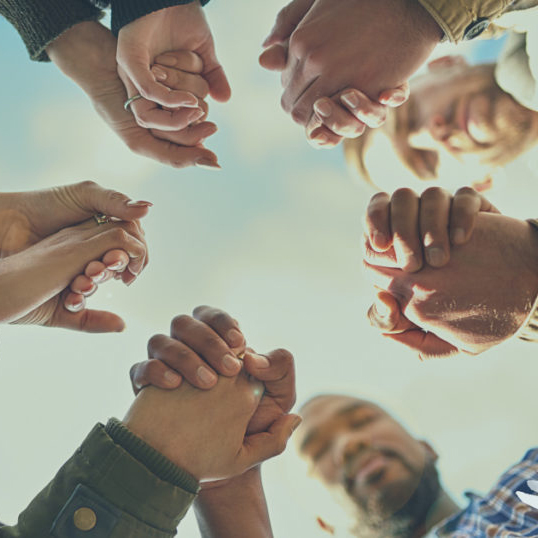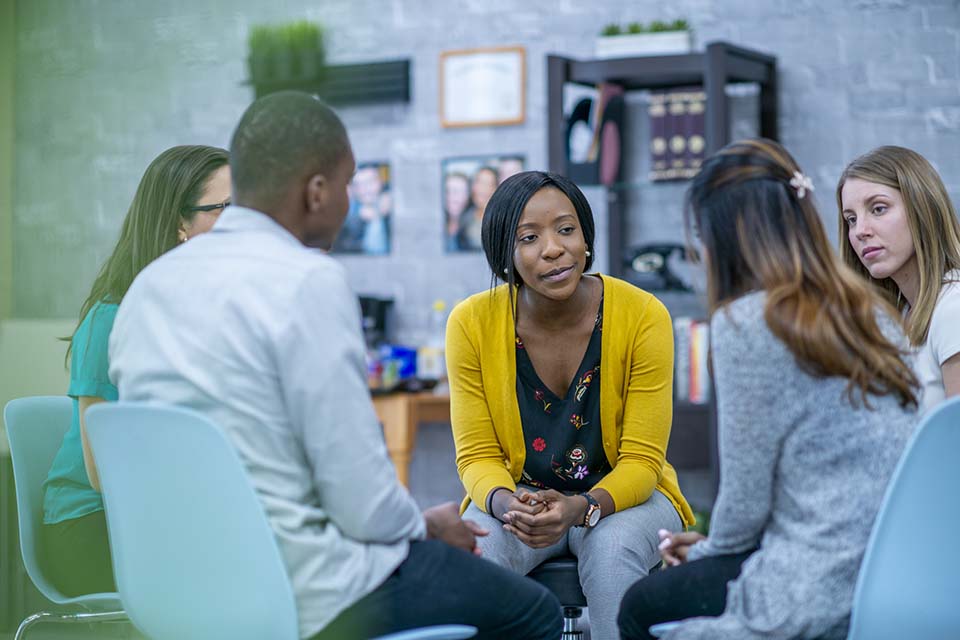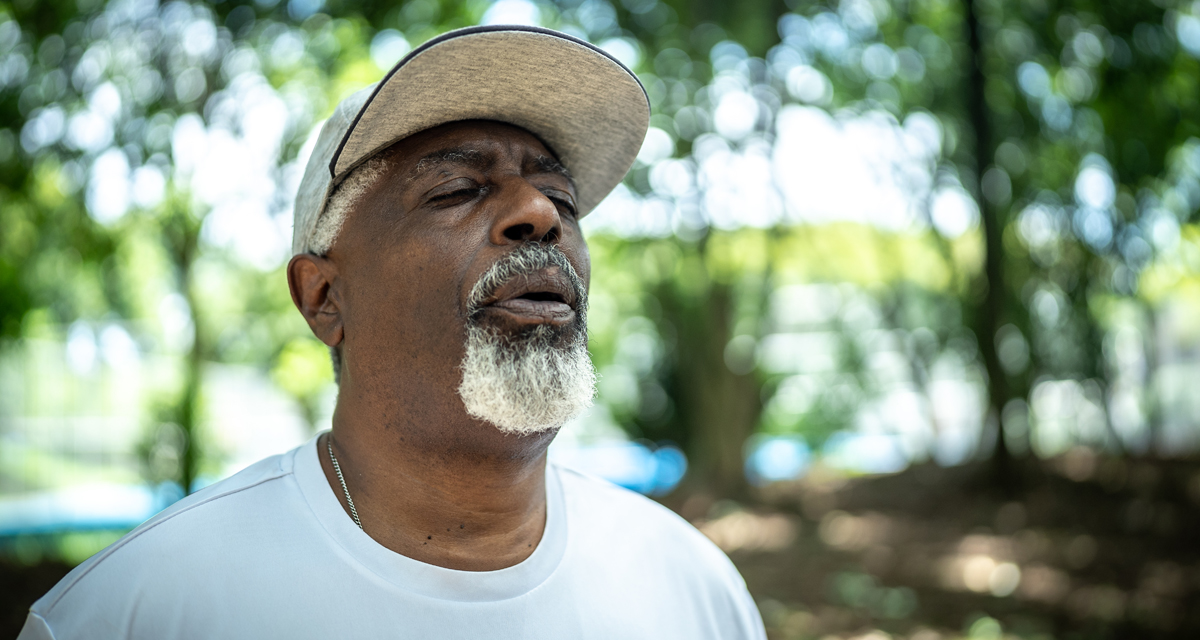Free Addiction Treatment and Sober Living Resources
Here at ECHO Recovery we’re dedicated addiction education and recovery support through mentoring and providing the tools and resources needed to those seeking treatment.
Please use this form to contact us if you need help finding a treatment program or sober living housing. We have also have curated a collection of resources you can use to find free and low-cost behavioral health services.
The first step in getting treatment for a substance abuse disorder is finding a good drug and alcohol rehabilitation center. Unfortunately, private rehab services can be expensive and many individuals don’t have enough insurance coverage and simply cannot afford the out of pocket costs.

Here are some free resources for finding low cost treatment services:
1. The SAMHSA Behavioral Treatment Services Locator:
Learn More About SAMHSA
Substance Abuse and Mental Health Services Administration (SAMHSA) is the agency within the U.S. Department of Health and Human Services that leads public health efforts to advance the behavioral health of the nation.
This tool provided by SAMHSA allows individuals to find nearby Behavioral Health Treatment Services from centers that offer income-based fees, lower prices, or payment assistance for substance use/addiction and/or mental health problems.
Or, you can use their new website which also offers additional information on treatment options, paying for treatment, understanding addiction and mental health.
Find a treatment facility near you: https://www.findtreatment.gov/
2. SAMHSA’s National Helpline – 1-800-662-HELP (4357):
Learn More About SAMHSA Helpline
SAMHSA’s National Helpline is a free, confidential, 24/7, 365-day-a-year treatment referral and information service (in English and Spanish) for individuals and families facing mental and/or substance use disorders.
3. Directory of Single State Agencies (SSAs) for Substance Use Services:
Learn More About SSAs
This online directory, also by SAMHSA, provides contact information for government agencies by State that coordinate the delivery of addiction treatment services to individuals who are uninsured or have a qualifying low income.
Individuals can find and call their state agency and ask about any government-funded rehab centers where you may be qualified to receive treatment.
4. ATLAS by Shatterproof:
Learn More About ATLAS
Find and compare treatment facilities using trustworthy information on treatment quality. Note ATLAS currently includes facilities in 10 states – Delaware, Florida, Louisiana, Massachusetts, New Jersey, New York, North Carolina, Oklahoma, Pennsylvania, and West Virginia – but plans to expand nationally.
Other Ideas for Finding Low Cost Addiction Treatment
Community Churches and Faith-Based Organization
Local churches and other faith-based organizations. A number of faith-based groups operate drug and alcohol recovery programs. Try contacting these organizations to find out if they provide any free rehab programs. Some of the groups we are aware of include:
- The Christian Salvation Army Adult Rehabilitation Centers
- The Orthodox Jewish Chabad movement recovery programand its residential treatment center for men in California
- JACS, a Jewish community addiction resource group in New York
Faith-based rehab facilities use their spiritual and religious traditions as part of their treatment program. Finding these centers is often times just a matter of talking to the leaders of these churches and groups in order to discover what resources they have available. Often times these programs are free of charge, but not all of them, so individuals should reach out to the organization to learn more.

Scholarship Programs
Some private facilities and non-profit organizations offer scholarships to help people with low income afford treatment. You can try reaching out to private rehab centers in your area to ask about the availability of scholarship programs and sliding scale fees.
In some cases, SAMHSA also provides grants for treatment that can be provided through the state or treatment center.
SOBER HOUSING AND HOMELESS RESOURCES
The ECHO Recovery Sober Housing Initiative
Here at ECHO Recovery we accept donations which we use to help sponsor those in recovery. Often times, even when someone has insurance that covers their care, individuals need help paying for housing and basic necessities while in the initial stages of treatment. A portion of our donations is directed to helping fund sober housing for those in early recovery.
However, please note that currently due to high demand and lack of sufficient funding, our sober housing scholarship applications are temporary closed. Learn more here and if you can, consider donating so we can support more people in need.
Are you in Maryland? Find additional free resources here.
Homeless Resources
ECHO Recovery does not provide direct services such as housing or case management. If you are homeless or at risk of becoming homeless, please contact your local 2-1-1 hotline or visit the National Alliance to End Homelessness for more information on how to get help in your community.
You can also visit SAMHSA to learn about Grant Programs and Services for Homelessness.
Additional Mental Health Resources

Confidential Crisis Hotlines
- Boys Town National Hotline. A 24-hour crisis line staffed by counselors to provide support and resources: 1-800-448-3000.
- National Runaway Safeline. A hotline providing confidential and nonjudgmental support for those who are contemplating running away or who have already done so: 1-800-RUN-AWAY (786-2929).
- National Suicide Prevention Lifeline. This is a free, confidential support line available 24/7 to those in distress, crisis, or need. It provides crisis services, emotional support, and resources to those thinking about or impacted by suicide: 1-800-273-8255.
Recovery Community and Support Group Resources
Traditional 12-Step Approach
Some of the groups following a traditional, 12-step approach, include the following:
- Alcoholics Anonymous(AA). The founding 12-step fellowship program first established in 1935, this international support group is available to help people achieve and maintain sobriety through peer support and following the traditional 12 steps. Membership is free; the only requirement to participate is a desire to stop drinking and using other mind-altering substances.
- Narcotics Anonymous (NA). An international 12-step peer-support group for those who are pursuing a drug-free lifestyle. Membership is free and regularly scheduled group meetings are available at a variety of locations around the world. If there is not a meeting in your area, contact NA to learn how you can start one.
- Cocaine Anonymous(CA). A global, 12-step program for both men and women suffering from cocaine addiction. Membership is free; the only requirement to join is that people have a desire to stop using cocaine and other drugs and alcohol.
- Crystal Meth Anonymous (CMA). A fellowship of people who come together to support one another in quitting crystal meth through the 12-step process. There are no membership dues and the only requirement to join is a desire to stop using.
Alternatives to the 12-Step Approach
There are also support groups that provide an alternative to the more traditional 12-step philosophy, including:
- SMART Recovery. An empowering, worldwide recovery support group based on the latest scientific research. Membership is free and services are provided online and in face-to-face meetings.
- LifeRing Secular Recovery. An abstinence-based peer-to-peer support network to help people obtain and maintain sobriety. It is a secular community whose focus is on empowerment and sharing. Meetings are available in person as well as online.
- Refuge Recovery. Refuge is a Buddhist-oriented approach to recovery, and like SMART, it is founded on the belief that, “All individuals have the power and potential to free themselves from the suffering that is caused by addiction.” This empowerment comes from practicing self-compassion, and opening one’s heart and mind to respond to events and moments in life without self-harm.
- Women for Sobriety. This organization was started to connect women other women, allowing them to help each other come to terms with addiction, change for the better and find sobriety. Women for Sobriety is an abstinence-based recovery program, and while it does not have a rigid 12-step structure, there are 13 affirmations to its New Life Program.
- Moderation Management. This group is targeted at individuals who don’t have as severe a problem, but who recognize moderation can lead to a healthier and more enjoyable life. While MM is not arranged as a 12-step program, it does encourage participants to take a step-by-step approach to changing their behavior.
Recovery Advice When Money Is Tight
Trying to live on a limited income is challenging enough. Add an addiction or mental health issue that needs professional treatment and it can seem impossible. However, don’t wait to reach out for help, even if you don’t believe you can afford it. There are many resources, as we outlined above, that can provide financial aid and help you or your loved one get into the right treatment program.
As always, if you need help getting into treatment and want to talk to someone free of charge, ECHO Recovery is here to guide you in the right direction. Don’t be afraid to reach out: Contact us here.
Other Frequently Asked Questions About Low-Cost Addiction Treatment
Who is Eligible for Free Drug and Alcohol Rehab?
Once you find a rehab center you want to learn more about, call the program manager and confirm their eligibility criteria. Expect to provide information and documentation on things like:
- Your income
- Your age
- Your insurance
- Your residence
- Your pregnancy status
- Your existing medical problems
Answering these questions can help ensure you get access to the most appropriate care, treatment facility and resources available.

Can I Get Insurance for Addiction Treatment?
Even if you are currently unemployed, you can still sign up for health insurance and, depending on your income, it may be at no cost to you.
To learn about low-cost insurance options, we suggest:
- Visit Healthcare.gov
- Search Google for your state insurance options
- Or, call your local county office to find out where you can go to sign up for Medicaid or Medicare programs
These state insurance programs are designed to be easy to sign up for and often times the state has a representative that can help answer your questions and walk you through the process at no cost to you.
If you still don’t fully understand the differences between Medicaid and Medicare, and which one is right for you, here is a quick breakdown of both programs:
- Medicaid is a federal and state-funded program that was originally created in 1965 to provide health insurance to those with a qualifying low income. While coverage varies depending on the state you live in, substance abuse treatment is typically covered.
The Affordable Care Act requires that all insurers, including Medicaid, provide coverage for behavioral health issues. Please note that not all treatment facilities can accept Medicaid insurance coverage as payment, so check with the facility you plan to attend to make sure it will be accepted.
- Medicare is another federal and state-funded program established in 1965 that provides insurance for those older than 65 or who have a severe disability, regardless of income. In some cases, people qualify for and receive both Medicaid and Medicare for their health insurance coverage.
Medicare provides coverage for substance abuse and addiction treatment in the following circumstances:
- When a doctor declares that substance abuse treatment is medically necessary or sets up the plan of care.
- When treatment is provided by a Medicare-participating facility or provider.
Inpatient or residential addiction treatment is covered by Medicare Part A, and out-of-pocket costs are the same as those for hospital stays. However, Medicare will only cover up to 190 days in a psychiatric hospital per lifetime.
Outpatient treatment services, such as: therapy, pharmacological treatments administered at a doctor’s office, and educational classes, are all covered under Medicare Part B at an 80/20 rate. This means that Medicare pays 80% and the consumer or supplemental insurance is responsible for the remaining 20%. Most prescription medications are covered under Part D. However, Part D will not cover methadone or buprenorphine for treating addiction. Methadone may be covered under Part A if administered at a hospital.
Can I Pay Cash for Addiction Treatment?
If you don’t have insurance and can’t find a free program, don’t forgo seeking treatment. Many private rehabs will provide options to help you get into and stay in treatment. For example, if they don’t have a scholarship, they still might:
- Provide a Cheaper Cash-Pay Option.
Some treatment facilities will provide a sliding scale for cash pay clients without insurance or with a lower income.
- Give Financing Options.
Not every rehab center requires up-front payment for services. Some will work with you on a payment system, allowing the individual or their loved ones, to pay for the services over an extended period of time.
- Offer Loans.
Some treatment centers work with financial institutions to help you get a loan, which can be used as a form of payment to can help you get into a program quicker.




